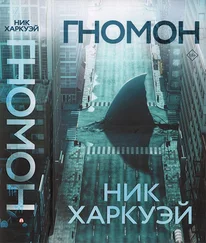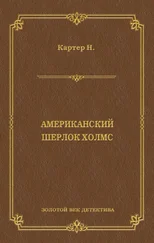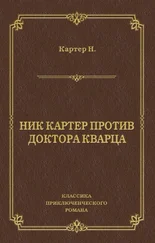She has come in very quietly, and now she touches Joe lightly on one shoulder. Her finger turns him towards her, and a soft kiss brushes his lips. In his gut, a flicker of angry bear: I will keep this woman safe. I will bite anyone who is unkind to her .
The bear, at least, has no doubts.
She grins at him, as if hearing the inner growl, and squirms onto his lap.
“So, come on. What are you doing?”
“Looking for Mathew,” he confesses.
She nods. “But he’s not here?”
“No.”
“Why Mathew?”
“Because this is his kind of thing.”
She stares at him, and then, very precisely, blows a raspberry into his face. “Rubbish!”
“What?”
“I said, rubbish. Utter nincompoopery. What… gah!” Words fail her. “Joe. You don’t need to look for Mathew. You’re you. His son. But, mostly, you. And you are good at this! Look at the last few weeks and tell me I’m wrong.”
He is about to do so, but she points one finger sharply at his eye. Independent supervillain in my own right . Yes. That surely includes collegial respect.
“Good,” Polly Cradle says. “Now. Show me the gun.”
When he does, she laughs.
“You fire it the way you want to fire it, Joe,” Polly Cradle says, when she can speak again, “not the way you think you should . Bollocks to should. Say it with me.”
“Bollocks to should,” Joe intones dutifully, and she makes him say it over and over with her, until the sense of transgression lifts him up again. Being the new unafraid Joe is wonderful, but it’s also like a slippery log: he can walk along it for a while, but in the pauses he loses his footing and falls off. Momentum is important, and practice. And it’s easier in opposition, too, in the face of someone who can be delighted or appalled. He finds himself feeding off the audience.
Polly grins at him, feral, from the shadows to one side. Motions to the gun: go ahead .
Joe sets himself, plants his feet wide, switches the Thompson to full-auto mode, feels the coat on his shoulders and the excitement of the child he was. This is the gun. That gun. Dad’s gun! The strictly forbidden un-toy, the tool of a gangster’s trade.
A mad grin tugs at his mouth; not the mild nostalgia of his first effort but a kind of deranged glee. He lets it show his teeth, then pulls the trigger as if launching an ocean liner.
The gun howls and jerks, sending ripples of shock through his arms and chest. He wrestles it, fights to hold it down, keeps his finger clamped on the trigger. You don’t see a gangster squeezing off rounds like a miser. Hell, no. You see him hosing the enemy with hot lead, doing property damage, making a point. A gangster is not a sniper. He is profligate, needless, heedless. He is mad as a shaved cat.
He ends up almost leaning on the gun as if it were a small, wiry demon trying to get out of a box. He fires off the whole drum, and realises he is laughing outright, a deranged, terrified or terrifying cackle. Finally, the roar stops, the beast is still, and the damage is prodigious. He stares down the range, through wisps of smoke and dust.
The mannequins are in pieces. Chunks and strands of them are strewn all over, splattered into the wall behind. The wall itself is peppered and speckled with impacts, the boards and barrels stacked against it to absorb the ricochets are so much kindling. There are little fires and charred holes everywhere. He picks his way through the devastation, stares at what he has made. And once again, he understands.
“Wow,” Polly murmurs.
Joe Spork grabs her up and kisses her soundly, triumphant. “You’re a genius.”
“I am?”
“Yes. You are. Because I get it. I get it now. This is what it’s all about. The stricture of the gun.”
She smiles. “Tell me.”
He grins. “Imagine this: suppose you had some other gun and I had that thing. Right? And on the count of three, we’re both going to start firing. Really, you ought to win. You’ll be faster and more accurate, and you can duck and weave, you’ll take me apart. Right? How do you feel about it?”
“I don’t fancy it.”
“Exactly. Because a man carrying a tommy gun plants his feet and lets loose and no one knows—literally no one—what will happen next. This is a gambler’s weapon. A gangster’s gun. It’s not about perfection or skill or even surviving. It’s about brass and swagger. It’s big and loud and ridiculous and it says: Give it your best! Because one of us is going down and I don’t know or even really care which it is! ” He grins again.
“You’re back on track, then,” Polly murmurs happily, and sees him nod, and then nod again more slowly, his eyes opening very wide. Criminal epiphany.
“Oh, yes,” he says fervently. “Yes, I am. Back on track, indeed.”
“Mercer!” Joe Spork yells at the top of the stairs. “Your sister is a genius!”
“What?” Mercer peers at him, then blanches slightly. “No, she isn’t, you must be mistaken.” And when this makes no impact on the effervescing Joe, “Oh, shit. This is what old Jonah told me would happen. He said one day I’d be running along behind you like the last Marx brother trying to catch the vase. I told him you were sensible.”
“I was. Look where it got me. So now I’m not.”
“Joe, what—”
“No time. I need to prepare. So do you. Tell Jorge I need them all tonight.”
“Need what?”
“He’ll know.”
“I don’t!”
“I’ve got a plan.”
“What sort of plan?”
“You’re going to hate it.”
“Oh, good.”
“Let’s see about the army first, and then we can argue.”
“Army? What army?”
Joe grins and dashes out.
“What army? You don’t have an army! Apart from”—he gestures at the dog lying flatulently on the sofa—“the world’s smallest airborne toxic event over there! Joe? Joe!”
Polly Cradle emerges from the Tosher’s Beat with her eyes fixed on one of the Sharrow House maps. “Oh,” she says, after a moment. “Oh! Oh, my.” Long nails scratch lightly at the glossy paper, tracing the line of the old railway which leads to one wall of the grounds. “Oh, my…” Her breath catches in her chest.
“What?” her brother asks.
“He’s back on track.”
Jorge’s message goes out to one person at a time—the Night Market has no website, no bulletin board—but for every felon, receiver, forger or fixer he tells, five more find out, and then ten. Invitations go to the big players and rumours to the small, but in the Market a rumour might as well be embossed in gold. All this chatter comes, inevitably, to the notice of law enforcement, but Jorge is well-used to signal leakage and disperses lies and fables to nurtured snitches. A police task force is dispatched to Manchester on a snark hunt, another to Bray. Analysts are awash in Spork sightings by lunch, cursing by tea. All the while, the intended recipients of the message are hearing it louder and louder: Joe Spork is putting together something big.
Big Douggie, boxer and purveyor of doughnuts, did prison for the Post Office job in ’75, and got out just in time for Mathew’s death and the changing world. He’s washing towels when the phone call comes, wishing he could find a way to stop them smelling like day-old fish stock.
Читать дальше
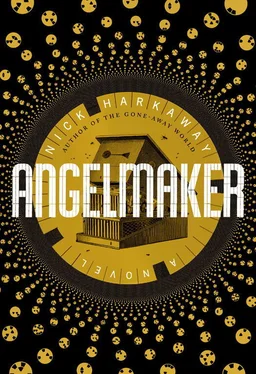



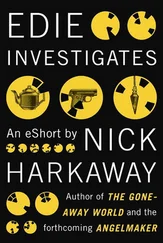
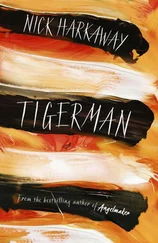
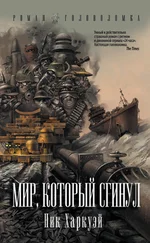

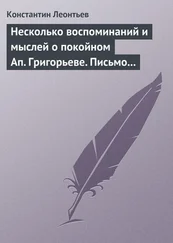

![Ник Харкуэй - Гномон [litres]](/books/400023/nik-harkuej-gnomon-litres-thumb.webp)
